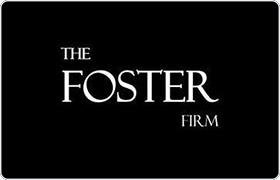Ponce De Leon White Collar Crime Lawyer, Florida
Sponsored Law Firm
-
 x
x

Click For More Info:
-
The Foster Firm
42 Business Centre Drive Suite 301 Miramar Beach, FL 32550» view mapCriminal Defense Law We Will Protect Your Rights!
Our law firm has been operating for more than 15 years and our team has numerous years of experience between them, to ensure you get the best legal advice possible.
800-940-3710
Not enough matches for Ponce De Leon White Collar Crime lawyer.
Below are all Ponce De Leon Criminal lawyers.
Matthew David Schultz
✓ VERIFIEDAccident & Injury, Criminal, Eminent Domain, Motor Vehicle, Lawsuit & Dispute
Mr. Schultz is an accomplished lawyer that has over twenty years of legal experience in accident & injury matters. He also specializes in various as... (more)
David Walker Green
Land Use & Zoning, Criminal, Commercial Real Estate, Estate Planning
Status: In Good Standing Licensed: 43 Years
Clayton J. M. Adkinson
Civil Rights, DUI-DWI, Child Support, Administrative Law, Federal Appellate Practice
Status: In Good Standing Licensed: 51 Years
A Wayne Williamson
Accident & Injury, Estate, Real Estate, Criminal
Status: In Good Standing Licensed: 27 Years
Ruston Ryan Sanders
Land Use & Zoning, Lawsuit & Dispute, Criminal
Status: In Good Standing Licensed: 19 Years
 James J. Foster Miramar Beach, FL
James J. Foster Miramar Beach, FL Practice AreasExpertise
Practice AreasExpertise

